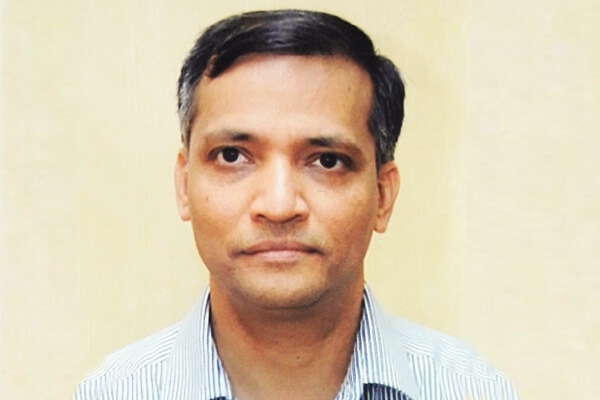With e-challans system, things get easier in State’s Transport Deptt
| Date :24-Nov-2020 |

By Vikas Vaidya :
WITH successful functioning of echallans in Maharashtra’s Transport D e p a r t m e n t , things have become easier. The pendency of cases of violators of Motor Vehicle Act has reduced d r a s t i c a l l y . Transport/Traffic e n f o r c e m e n t challans in Maharashtra has undergone a transformation with the adoption of e-challan, wherein the traffic violators are issued electronic challans, with a provision to make the payments on-line through various payment options like NEFT/Net banking/Credit/Debit Card etc. Ashish Kumar Singh, Principal Secretary of Transport Department, who was elevated to Additional Chief Secretary by Uddhav Thackeray-led Mahavikas Aaghadi Government giving him additional responsibility of Chief Minister’s Office (CMO), is the one who brought these changes in the department.
It is second time that Singh is working in CMO. Earlier, he worked during the tenure of Prithviraj Chavan. While the new system inTransport Department helped in seamless collection of payments from the violators, some of the sections under MotorVehicles Act 1988, being noncompoundable, still provisioned for the violators to physically visit the Motor Vehicle Court in the respective jurisdiction.This not only added to the plight of the citizens who were expected to hire services of competent lawyers to contest their case but also mandated physical visits to the already crowded and over-burdened courts for clearance of the case. The redundancy and number of cases consumed the much-valued bandwidth of the judicial officers, while making it difficult and tiresome for the citizens to deal with routine challan related matters.
Virtual Court, popularized by the Supreme Court's E-Committee, is a concept targeted at eliminating the physical presence of litigants or lawyers in the court, and the adjudication of the cases is done online. The concept has been thought to be really useful, especially getting away with monotonous routine work, like dealing with regular traffic/transport challan cases. Earlier thousands of cases of violation of Motor Vehicle Act remained pending for longer duration. The ongoing pandemic reinforced the importance of delivering services electronically. As mentioned by Justice D Y Chandrachud of the Supreme Court of India, between January 1, 2020 to October 30, 2020, which included the seven months of non-physical functioning of courts due to Covid-19, as many as 202.35 crore e-transactions were recorded on e-court websites. Implementation of virtual courts freed up 19 judicial officers, who could handle litigation instead of taking up routine traffic violation cases. With a thought that the system in Transport Department should match with the court of law, Ashishkumar Singh studied the process of virtual court. Adoption of virtual court in Maharashtra (integration with e-challan) is another aspect that helped in clearing the cases registered under Motor Vehicle Act. Shrarad Bobde, Chief Justice of India (CJI) has inaugurated the system.
The provision of a dedicated virtual court, for traffic violations in Maharashtra was made. The specialty of it is one single judge will have jurisdiction over the entire state, with cases being filed electronically, from the eChallan application. The task of running the virtual court could be assigned to any judge, who would adjudicate all the cases electronically, from any physical location in the state. For non-compoundable violations such as driving under influence, permit violations etc, with requirement of court intervention, the challan is automatically sent to the virtual court.
The violator gets an SMS, with penalty amount, ordered by the virtual court judge, on his registered mobile with the vcourts.gov.in link to make the payment on-line. Once the payment is made on-line, the challan on the echallan system gets cleared automatically. If the violator chooses to contest the case and does not accept the penalty imposed by the virtual court, the case gets assigned to the respective MotorVehicle Court, in the jurisdiction of which the traffic violation took place, for physical hearing.